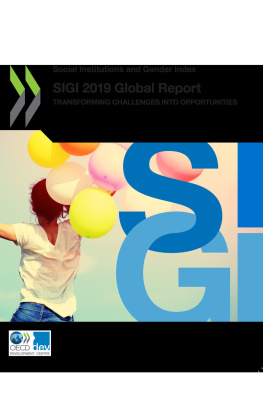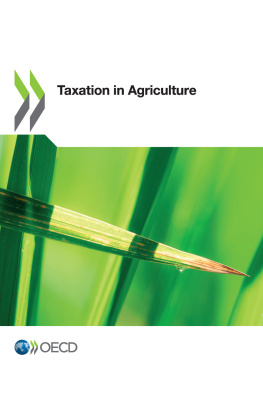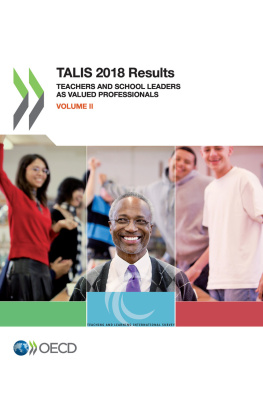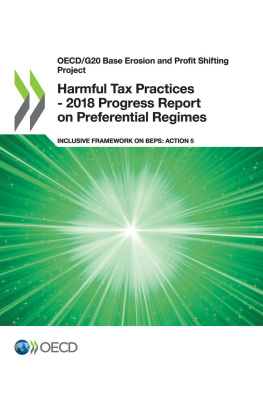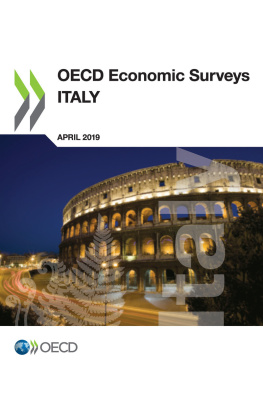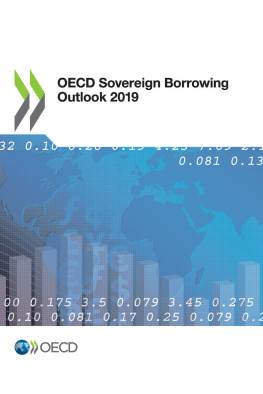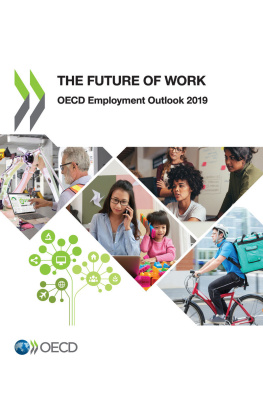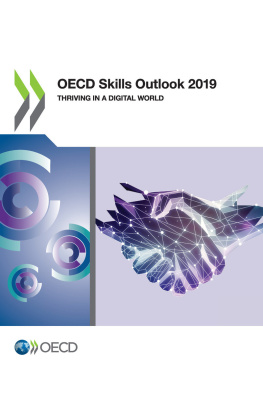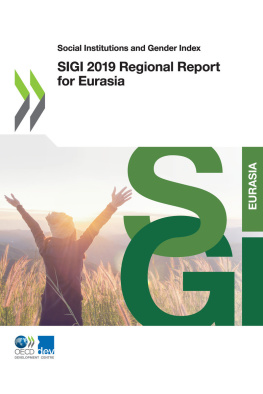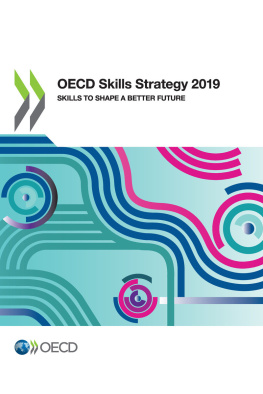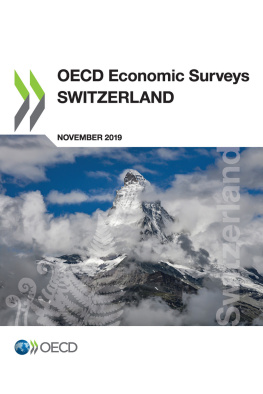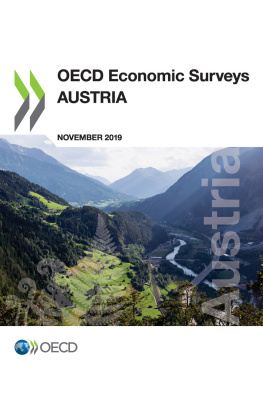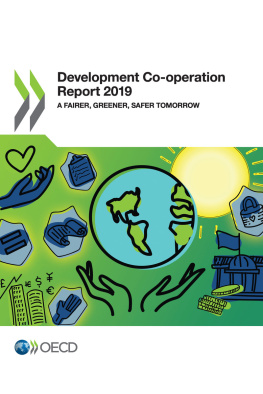OECD - SIGI 2019 Global Report
Here you can read online OECD - SIGI 2019 Global Report full text of the book (entire story) in english for free. Download pdf and epub, get meaning, cover and reviews about this ebook. year: 2019, publisher: OECD Publishing, genre: Politics. Description of the work, (preface) as well as reviews are available. Best literature library LitArk.com created for fans of good reading and offers a wide selection of genres:
Romance novel
Science fiction
Adventure
Detective
Science
History
Home and family
Prose
Art
Politics
Computer
Non-fiction
Religion
Business
Children
Humor
Choose a favorite category and find really read worthwhile books. Enjoy immersion in the world of imagination, feel the emotions of the characters or learn something new for yourself, make an fascinating discovery.
SIGI 2019 Global Report: summary, description and annotation
We offer to read an annotation, description, summary or preface (depends on what the author of the book "SIGI 2019 Global Report" wrote himself). If you haven't found the necessary information about the book — write in the comments, we will try to find it.
OECD: author's other books
Who wrote SIGI 2019 Global Report? Find out the surname, the name of the author of the book and a list of all author's works by series.
SIGI 2019 Global Report — read online for free the complete book (whole text) full work
Below is the text of the book, divided by pages. System saving the place of the last page read, allows you to conveniently read the book "SIGI 2019 Global Report" online for free, without having to search again every time where you left off. Put a bookmark, and you can go to the page where you finished reading at any time.
Font size:
Interval:
Bookmark:
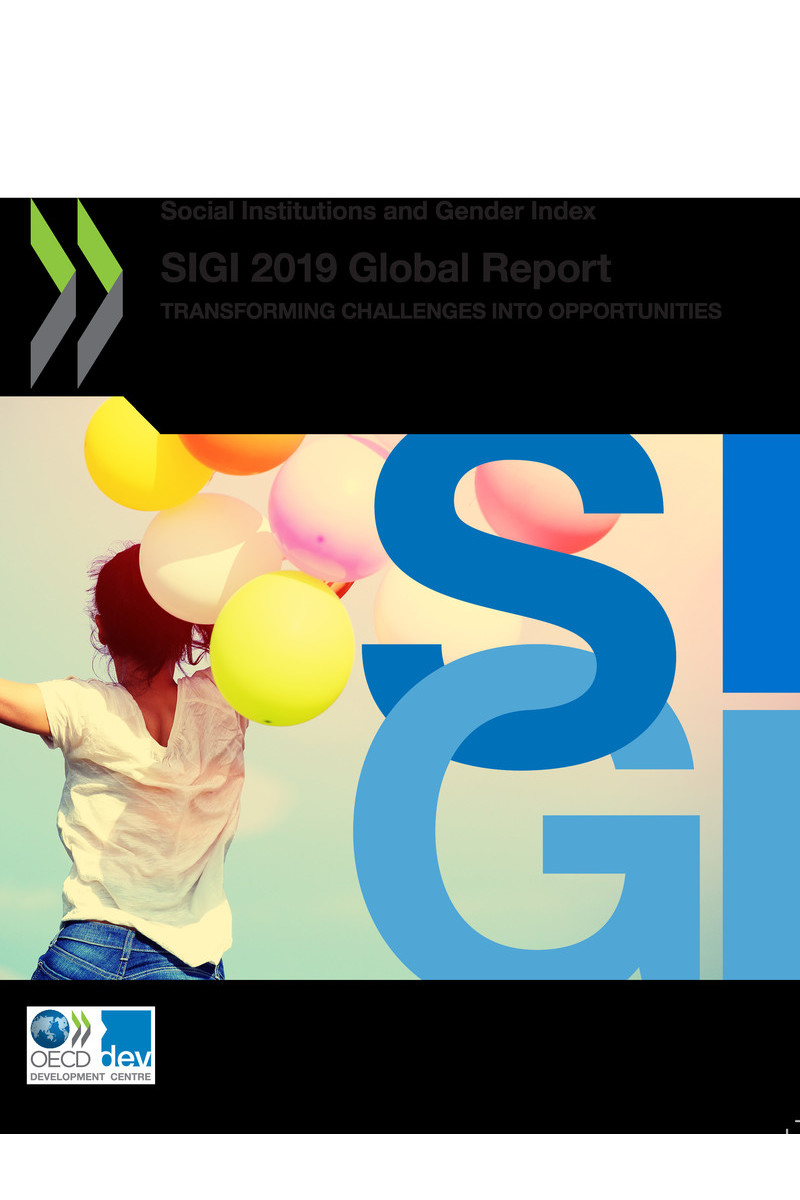
OECD (2019), SIGI 2019 Global Report: Transforming Challenges into Opportunities , Social Institutions and Gender Index, OECD Publishing, Paris.
https://doi.org/10.1787/bc56d212-en
Placing women and men on an equal footing in every walk of political, economic and social life gender equality is not only a moral imperative, but also an economic one. As this report points out, the cost to the global economy of gender-based discrimination in social institutions is USD 6 trillion (7.5% of the global GDP). The social impact of gender inequality affects the quality of life of millions of women in every sphere, but also has consequences for their families and communities. Much more is needed to achieve de facto equality between women and men. Social media movements as #MeToo, #BalanceTonPorc, #NiUnaMenos, and #JusticeforAsifa, are a stark reminder that violence against women and girls is an ongoing and pervasive problem that laws have been insufficient to remedy.
Decision makers have agreed on a new global compact: Agenda 2030. It puts gender equality and social norms at the core of sustainable and inclusive development. Governments are introducing gender-equality principles into their national and foreign policies as never before. World leaders have declared themselves feminists, supporting equal rights and opportunities for all citizens, regardless of their gender. Investments in gender equality issues, including collecting gender data, are at an all-time high. New partners, including the private sector and philanthropy, are stepping up to support gender equality, challenging the status quo and exploring new ways to advance the rights and empowerment of women and girls.
For the last decade, the Development Centres Social Institutions and Gender Index (SIGI) has been supporting countries in better understanding the barriers to gender equality better. By looking at the de jure and the de facto situations, often placing their effects in opposition to each other the SIGI 2019 Global Report shows that, despite impressive advances towards gender equality since the last SIGI report in 2014, the statutory legal system can be thwarted by parallel structures embedded in society. The power of the SIGI and of this report, which analyses its data demonstrates that reforms can have limited traction unless cultural, social and religious norms and structures are taken into account. This is why the SIGI report calls for rethinking how gender equality is tackled, emphasising the need to challenge entrenched ideas and prejudices to achieve the SDGs.
Indeed, empowering all women and girls, which is the objective of SDG 5, requires changing the way we think and act. This whole-of-society shift can best happen through better data collection, better analysis and better sharing of innovative approaches. The OECD Development Centre remains committed to supporting this paradigm shift and to making the SIGI even more relevant to policy makers as they advance towards achieving gender equality in all spheres of life.
Mario Pezzini
Director, OECD Development Centre
Special Advisor to the OECD Secretary General on Development
For the past decade, the OECD Development Centres Social Institutions and Gender Index (SIGI) has been measuring and addressing gender-based discrimination by looking at the invisible part of the iceberg and providing a clearer vision of how social institutions shape womens lives. The SIGI looks at the gaps that legislation, social norms and practices create between women and men in terms of rights and opportunities. This innovative tool enables policy makers and development practitioners to understand the barriers to gender equality better and to identify the drivers behind persistent forms of discrimination. First launched in 2009, and subsequently in 2012, 2014 and 2019, the SIGI has served as the basis for a series of reports analysing the level of discrimination in social institutions and the progress on gender equality. SIGI publications have included global reports, regional reports and country studies.
The SIGI 2019 Global Report assesses social institutions holistically by looking at the de jure and the de facto situations, often placing their effects in opposition to each other to show that, despite impressive advances towards gender equality since the last SIGI report in 2014, the statutory legal system can be thwarted by parallel structures embedded in society. The SIGI 2019 has also been adapted to meet the needs of the development community as it works towards Agenda 2030. The SIGI is an official data source for SDG Indicator 5.1.1. on legal frameworks, but also provides data for almost all targets included in SDG 5, providing a comprehensive vision of national progress on gender equality.
The SIGI 2019 report was prepared by the OECD Development Centre under the supervision and general guidance of Bathylle Missika. The report was co-ordinated by Galle Ferrant who led the gender team: La Fuiret, Alejandra Meneses and Hien Vu. Additional support came from Laura Copete, Colm Foy, Elizabeth Nash, Wanda Ollis, Lorenzo Pavone, Linda Smiroldo Herda and Annelise Thim.
The OECD Development Centre would like to thank the Austrian Development Agency (ADA), the Ministry for Foreign Affairs of Finland (MoFA), the Ministry for Europe and Foreign Affairs of France, the French Development Agency (AFD), the International Organisation of La Francophonie (OIF), the Swedish International Development Cooperation Agency (Sida) and the Swiss Agency for Development and Cooperation (SDC) for their strong and long-standing support of the Social Institutions and Gender Index.
Font size:
Interval:
Bookmark:
Similar books «SIGI 2019 Global Report»
Look at similar books to SIGI 2019 Global Report. We have selected literature similar in name and meaning in the hope of providing readers with more options to find new, interesting, not yet read works.
Discussion, reviews of the book SIGI 2019 Global Report and just readers' own opinions. Leave your comments, write what you think about the work, its meaning or the main characters. Specify what exactly you liked and what you didn't like, and why you think so.

